The complexities behind the violence in Rohingya camps

In recent months, incidents of violence and killings in the Rohingya refugee camps indicate that tensions have risen along the border with Myanmar due to increased crimes, including drugs and arms smuggling. Around 1.1 million Rohingya refugees, displaced from Myanmar, are currently living in the densely populated camps of Ukhiya and Tekhnaf Upazila in Cox's Bazar district, and locals and refugees alike have become involved with local and transnational crimes. As a result, a serious security threat has been created in the border areas.
Reportedly, various armed organisations and small groups are active within the Rohingya camps – police estimate that around 14 such groups are currently operating. Reports of clashes and killings between these groups to establish dominance over the camps are frequent. Since the Rohingya influx in 2017 till August 2022, there have been at least 115 Rohingya killings, according to the official figure. According to police, at least 2,441 cases have been registered in the last five years, including in relation to murders, weapons, drugs, abductions and rapes.
With the deterioration of Myanmar's internal situation in recent times, the number of killings of community leaders in Rohingya camps has also increased. There have been at least 20 killings in the last four months, and a large number of those killed were Rohingya community leaders known as majhis. Rights groups have argued that these murders are targeted killings, because the community leaders in question were working towards repatriation of refugees and campaigning for the rights, safety and well-being of the Rohingya people. It has also been alleged that many of them were killed for assisting the police in suppressing criminal activities.
Of these, the killing of Rohingya leader Mohib Ullah on September 29 last year was most highlighted in the media. An influential leader and Rohingya rights advocate, he was working for Rohingya repatriation and represented the Rohingya community at the UNHRC in 2019. His organisation, the Arakan Rohingya Society for Peace and Human Rights, played an important role in changing Rohingya perceptions in favour of repatriation.

Local Rohingya have attributed these killings to the Arakan Rohingya Salvation Army (ARSA), the most powerful extremist Rohingya organisation. In 2017, the Myanmar military used ARSA's actions as an excuse to justify their brutal campaign of genocide against the Rohingya in Rakhine state. Even though their presence in the camps has been repeatedly denied by the government, in March this year, law enforcement forces arrested the chief commander of ARSA Ulama branch, who allegedly issued the fatwa for the assassination of Mohib Ullah.
Much of the violence within the camps, including that being perpetuated by terrorist groups, have been associated with arms and drug smuggling, especially yaba. Myanmar's post-coup civil conflict and cash crunch have weakened drug enforcement capacity inside Myanmar, and given traffickers free rein. As a result, drug production and trade in and outside the country has increased at an alarming rate. There is a huge demand for Myanmar yaba inside Bangladesh, which has led to an intense conflict between these armed groups to establish dominance over the drug business. For these groups, repatriation is against their interests, since it will give them less scope to exploit refugees and enable the movement of these drugs.
As a result, the voices for Rohingya repatriation are being stifled as Rohingya leaders are targeted. At the same time, the continued violence within the camps is creating a negative image of the Rohingya to the host community, and potentially the international community, and perpetuating refugee fatigue. This can then be used by Myanmar to continue to justify the genocide and persecution of the Rohingya in Rakhine.
Law enforcement forces of Bangladesh are active in combatting terrorist activities. However, to prevent the criminal activities of these groups, security should be strengthened at important points along the border. Along with intensifying the activities of the law enforcement forces, intelligence surveillance should be increased in the camps. The safety and security of Rohingya refugees should be ensured since, as the recent violence shows, they are ultimately the biggest victims of the transnational drug and crime networks that are operating across the Bangladesh-Myanmar border.
Abdullah Sadi is a PhD researcher on South Asian politics and political economy in Boston University UK.

 For all latest news, follow The Daily Star's Google News channel.
For all latest news, follow The Daily Star's Google News channel. 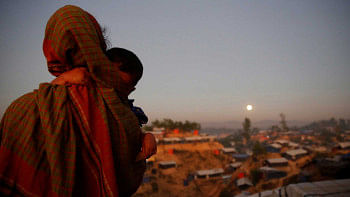
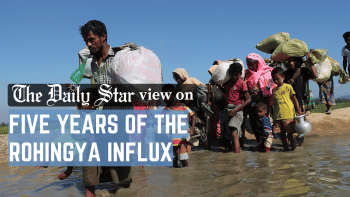


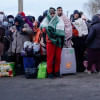
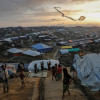
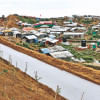
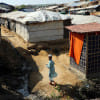



Comments